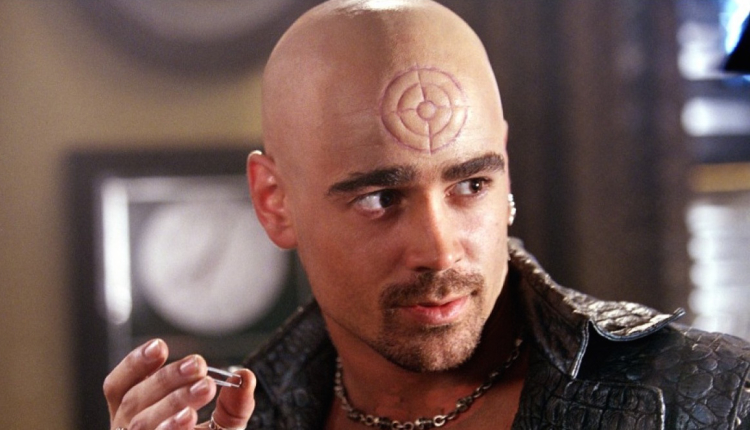The Redeeming Pros and Horrible Cons of Ben Affleck’s Daredevil | 15 Years On
Ben Affleck once revealed that his decision to take on the mantle of the Bat was essentially because of how ashamed he was of 2003’s Daredevil. 15 years on, it makes sense why he’d be embarrassed by it – the film is as painfully earnest and ill-executed as the debut of your brother’s nu metal band at the Ballyfermot Youth Club battle of the bands. But, in a very similar way to how sibling love would have you surrendering yourself to the badly-covered Korn catalogue (katalogue?) with a supportive head-bang, it’s difficult not to fall in love with Daredevil regardless of its shortcomings.
https://www.youtube.com/watch?v=LmP3YFk_YHA
For starters, Bendevil is a decidedly more pleasant chap to spend just-under 2 hours with than Batfleck. Despite a bizarre hairdo and some truly godawful dialogue (“Can one man make a difference?”), Affleck’s Matt Murdock manages to be a perfectly charming protagonist, whose inner turmoil feels as layered and complex as the character in the source material (in stark contrast to his Bruce Wayne, who looks, acts and talks like a petulant child pretending to be a grownup). Similarly, Jennifer Garner who is given even worse material to work with, somehow manages to be convincing as well. The two have exceptional chemistry and one would be forgiven for wishing those crazy kids had worked things out in real life. Jon Favreau sneaks his way into the Marvel universe (over which he would one day rule) with a pitch-perfect, delightfully sleazy portrayal of Foggy Nelson. So enjoyable is Favreau that many argue his presence in the film is the one thing the film got right that the acclaimed Netflix series got wrong. The always-enjoyable Joey ‘The Pants’ Pantoliano is at his character-actor best as investigative journalist Ben Urich. The late, great Michael Clarke-Duncan plays crime boss Wilson Fisk in a casting move that felt very progressive in 2003, (even if it is a bit odd that in a film filled with pale-skinned patriots, the despicable villain is the only person of colour to be found). Rounding out the cast is Colin Farrell, playing Bullseye with enough ham to overload an industrial piggery.

Like Spider-Man and X-Men before it, Daredevil gets the broad strokes right. Very little is added or subtracted to the character’s MO that wasn’t in the original mythos. Indeed, much like the kind of street-level vigilante stories from the comics (at least the more well-regarded ones), the plot is a relatively simple mob-revenge story, rather than the kind of things that dominate modern Marvel films. This was writer/director Mark Steven Johnson’s mission statement – as a devoted fan of the source material, he had no intention of tweaking anything that didn’t need to be tweaked. Stay with me though, Daredevil isn’t a great film. Sadly, what many fanboys forget is that it takes an awful lot more than being a fan of something to make a good film. Unlike the old Superman or Batman films (and very much like the new ones), too often Daredevil is played unbearably, unbelievably straight and its basic execution just isn’t good enough to earn that level of seriousness. Certain scenes and shots that are meant to be heroic and breathtaking are laughable (look out for the awesome scene where Daredevil negotiates his way through a load of someone’s laundry), the aforementioned dialogue is unfathomable at times (“I didn’t kill your father! It was a hitman named Bullseye!” “Liar!!”) and the film employs the most 2003-ish soundtrack of all time. Literally any time a character needs to express an emotion, a rock song accompanies them – which leads to some really smelly uses of Evanesence (during a funeral scene, lead singer Amy Lee sings to us of how “These wounds will not heal!” – well of course not, the guy only just died!). Further inspection of said soundtrack will reveal that almost every song features some kind of reference to not being afraid, being a man without fear, being a devil or a bringer of fire of some kind. Do you get it kids? Rob Zombie’s song “Man without Fear” literally has him growl-chanting the word “Daredevil! Daredevil!” throughout.
The other suffocatingly-dated aspect of the film is its appalling wirework. Despite taking place in a fairly real-looking NYC, Hell’s Kitchen appears to have gravity not unlike that of the moon – characters can leap across entire city blocks (despite not having any superpowers that would allow them to do so) and when they’re punched or kicked, they don’t just fall over, they sort of spin in the air, like Hoobastank’s brand new album being tossed into the crisp February 2003 breeze. Obviously trying to ride the coattails of Crouching Tiger and The Matrix, Daredevil (at least the action portions of the film) learned the wrong lessons from both and has aged about as well as Dereck Whibley’s blonde hair dye. Many fans will point out that the Director’s Cut is far superior because it re-incorporates an entire subplot regarding Coolio being framed for a crime he didn’t commit – yes, that’s right. Many people believe the presence of Coolio improves a film.
Still, despite its inadequacies, despite its cheesiness being akin to a sloppy New York slice, despite it wearing its 2003-ness on its red-leathery sleeve, Daredevil is utterly watchable and never boring. Its devotion to its source and its brisk pace make up for its laughable action and dated reliance on its soundtrack. Plus, in the literal wake of 9/11 they had the good sense to make a relatively small movie about a mob boss killing a few people he doesn’t like, as opposed to a megalomaniac out to atomise NYC with a particle accelerator or whatever the heck too many subsequent comic book movies were about.

